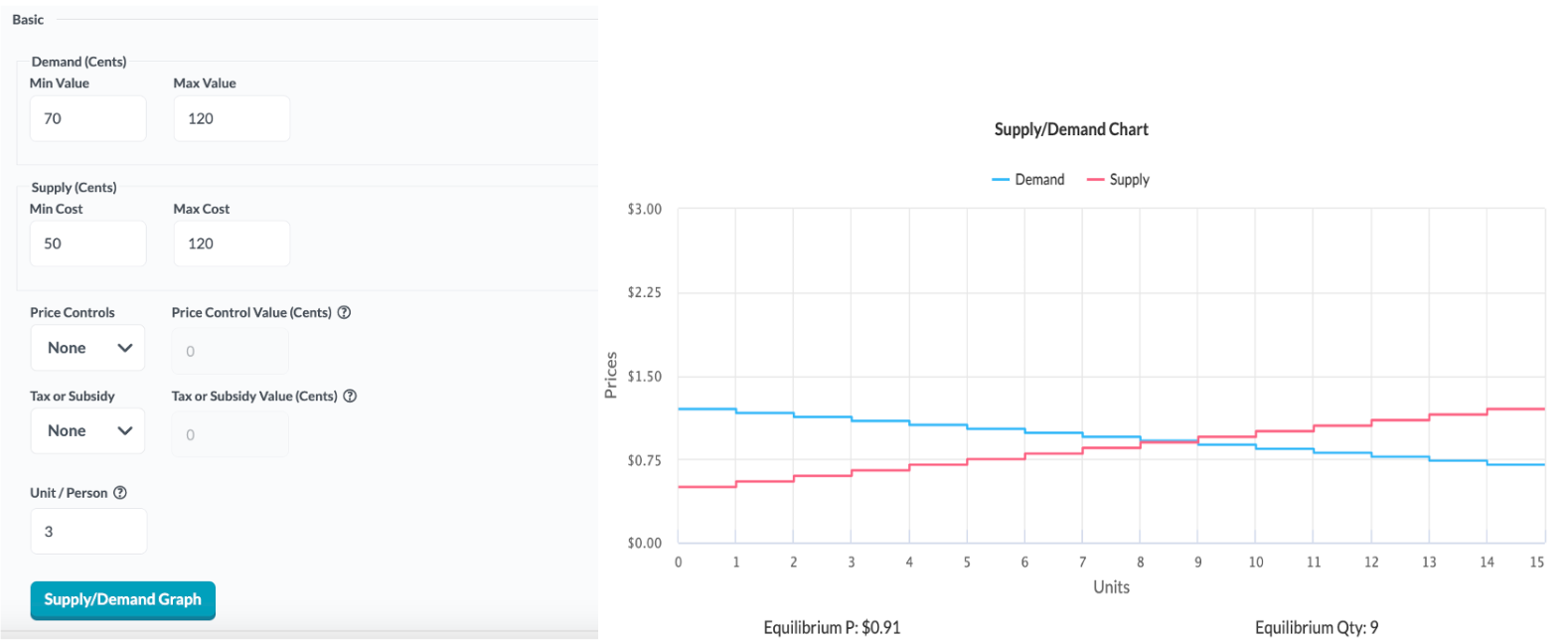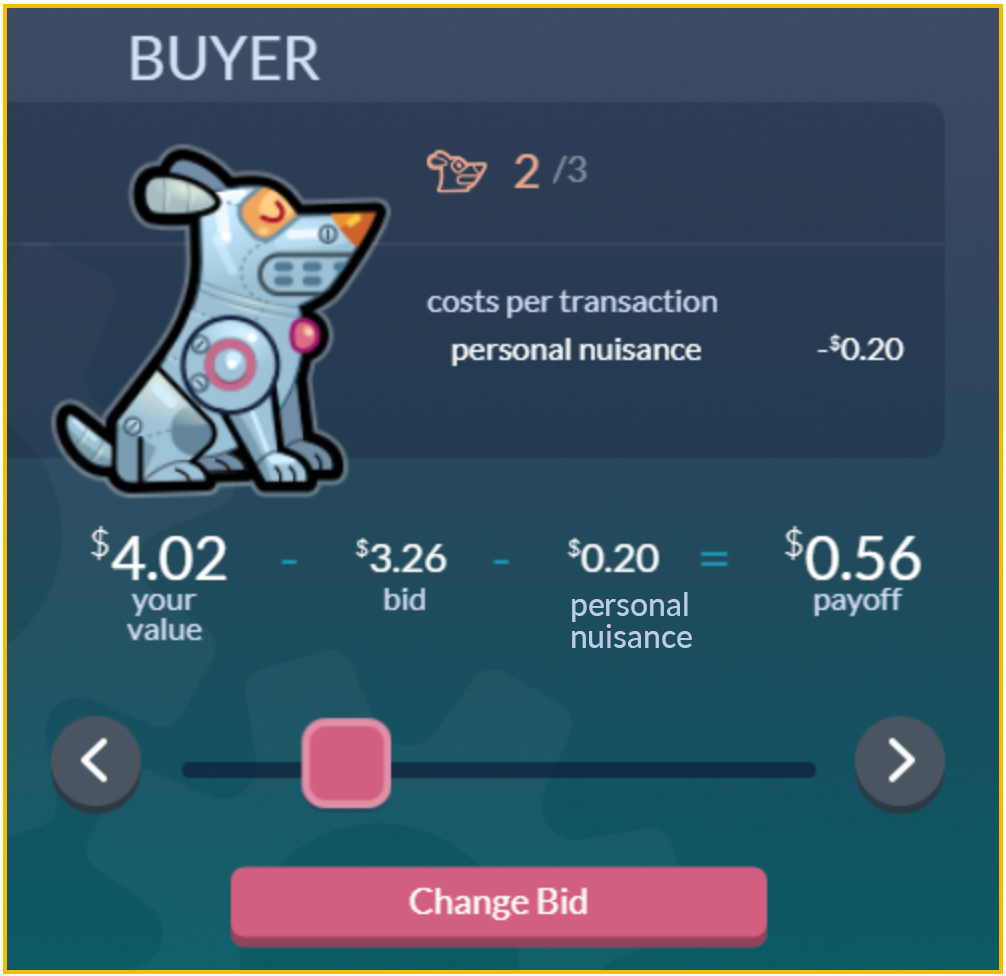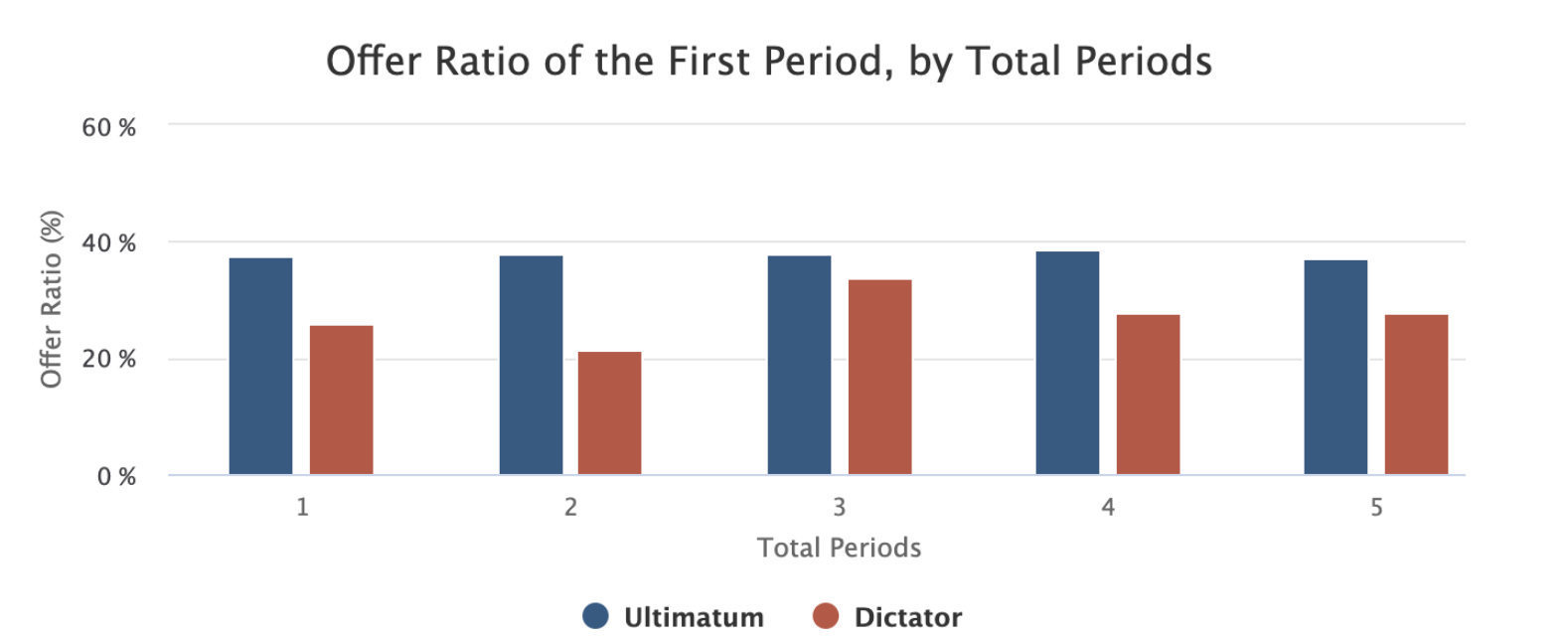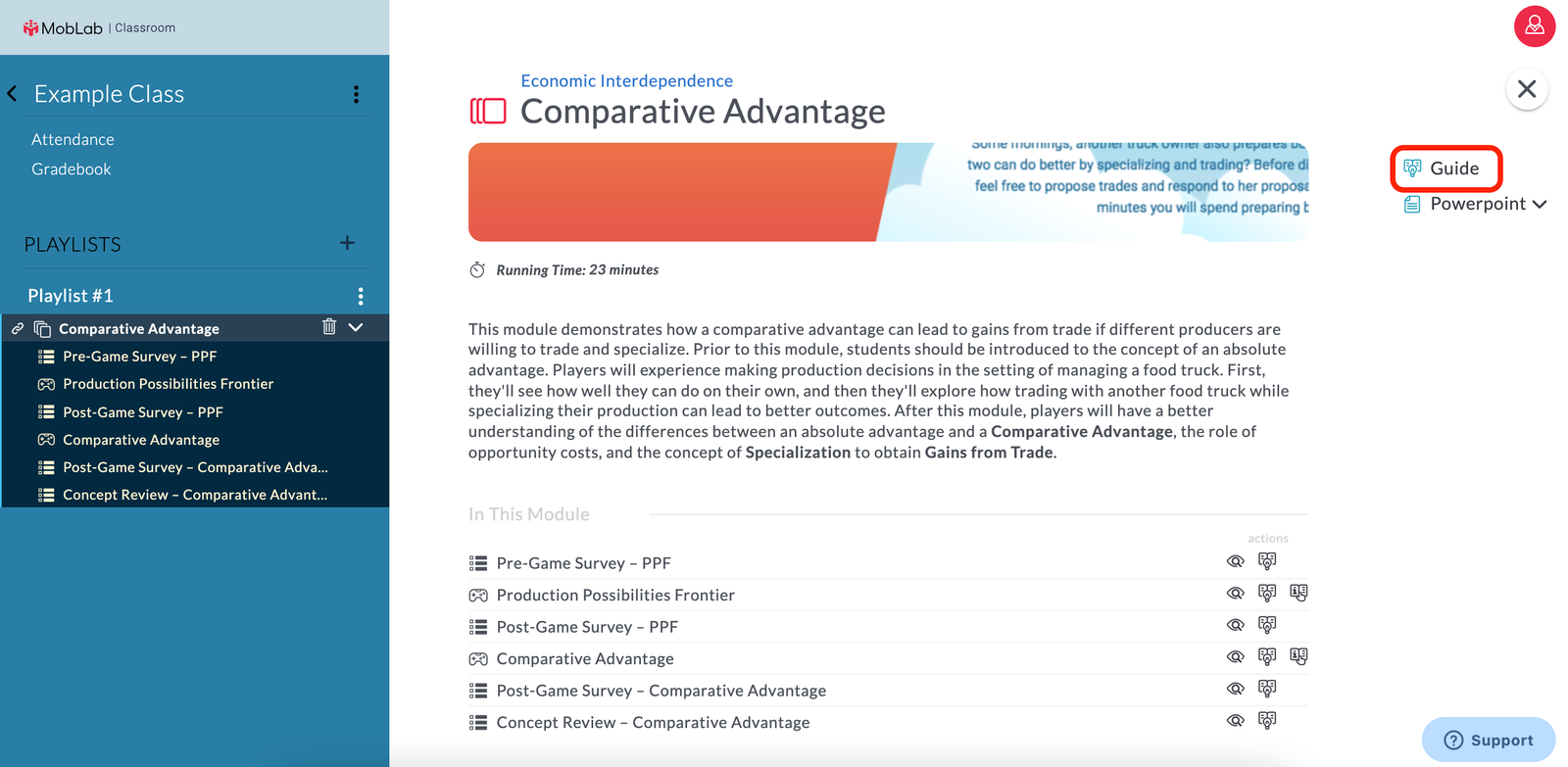With MobLab, instructors can achieve different learning outcomes to guide student efforts. Below are examples of five learning outcomes from MobLab games and features that can help your students in their efforts to gain mastery of economic concepts.
Learning Outcome 1: Explain how economists use the scientific process to expand understanding of individual decision-making, market outcomes, and government policies, and apply the process by practicing curiosity and hypothesis testing.
One of MobLab’s strengths is not only showing students how a theory can be tested but having them experience it with their own decisions. Our Competitive Market game covers these concepts with student decisions and results computed in real time. Different treatments can be applied to this game for instructors to introduce various economic hypotheses and thought experiments to their students before gameplay.

Learning Outcome 2: Choose and use appropriate concepts and models to analyze and evaluate choices, outcomes, and policies in diverse settings.
Experiments help students discover what models of human behavior are operable in diverse settings. MobLab has multiple public goods experiments to help students understand self-interested behavior in a market transaction versus behavior that impact others in a public goods setting. For instance, in our Externalities with Policy Intervention game your students trade robotic dogs as buyers and sellers in a double auction market. You can configure this game so that each dog sold either emits a negative externality in the form of barking or a positive externality by increasing the safety of the neighborhood. 
Learning Outcome 3: Develop quantitative reasoning skills by working with equations and graphs and by explaining the need for empirical methods that distinguish causation from correlation.
Getting students to participate in data exercises can be challenging. Participating in the data generation process can motivate students to evaluate their own decisions and the decisions of their fellow classmates. The Ultimatum and Dictator games feature simple gameplay with useful results that can be tied into the importance of empirical methodology and regression analysis.

Learning Outcome 4: Identify assumptions underlying economic models and connect those assumptions to particular theoretical results and/or observed conditions.
The MobLab survey is a useful method to help students reflect on experiments to review assumptions they had and connect them to the game results. Our surveys can also be applied as experiments themselves. For instance, the Time Preferences: Binary Choice survey is a great way to have students better understand the assumptions behind cognitive biases such as hyperbolic discounting. Students’ answers to all MobLab’s surveys are automatically computed instantly and can be evaluated by instructors to better understand student comprehension.

Learning Outcome 5: Discuss economic issues in ways that promote mutual understanding and inquiry, demonstrate fluency in basic economic terminology and tools, and explain economic reasoning to incorporate insights from non-economists.
Life is always full of risks and risk as a concept is covered by multiple fields of study such as economics, finance, and psychology. MobLab Modules were created with this in mind, as we combined economics experiments with reflection surveys to help students communicate their thought process and experiences.

No matter what learning outcomes you are striving for in your class, MobLab has a useful set of economics games and features that can help achieve the learning goals of your class. With detailed game and survey results computed in real time, the process of achieving classroom learning outcomes can be both fun and efficient.
Would you like to learn more about MobLab interactive economics games? Get in touch with our team. Click here to schedule a one-on-one demo meeting.
Learning Outcome 1: Explain how economists use the scientific process to expand understanding of individual decision-making, market outcomes, and government policies, and apply the process by practicing curiosity and hypothesis testing.





Would you like to learn more about MobLab interactive economics games? Get in touch with our team. Click here to schedule a one-on-one demo meeting.

